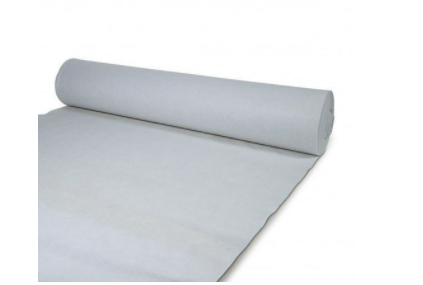- Understanding the Role of Geomembrane Liners in Waste Management
- Innovations in Geomembrane Liners for Water Management
- Geomembrane Liners: A Comprehensive Guide
- The Future of Geomembrane Liners in Civil Engineering
- Geomembrane Liners: Enhancing Landfill Stability
Manager:
WhatsApp:+86 177 0135 2670
Tel:+86 177 0135 2670
Email:marketing@okorder.com
Address:3rd Floor, No.2 Building, No.1 Sanlihe Road
Geotextile Fabrics: The Unrecognized Champions of Modern Infrastructure
In the convoluted ballet of contemporary infrastructure development, where human intelligence meets the planet’s strength, geotextile fabrics come across as silent partners, providing solutions to various engineering problems, stability and strength. These multi-purpose materials made from innovative fibers have been employed in numerous areas, starting from strengthening soil structures to water flow control. In this article, we will take a contemplative walk through the world of geotextile fabrics and ponder over their history, application area and the way they shape construction and environmental trends.
The Woven Legacy of Geotextile Fabrics
The story of geotextile fabrics is woven into human history because even in ancient times rudimentary forms of Geotextiles were used to reinforce structures. By the mid-1950s woven monofilament fabrics were introduced for erosion control; this marked the beginning of diverse applications that are common today.

A Tapestry of Strength: woven geotextiles
Woven geotextiles come about through a convoluted procedure in which layers polypropylene are compressed, cut and then intricately interwoven into high-tensile sheets. This produces a premium grade filter resistant to clogging from dirt, sand or debris. Woven geotextiles are recognized for their robustness, durability and resistance to UV decay that make them suitable for ground stabilization as well as projects requiring subsurface water flow.
The Versatile Weave: Non-Woven Geotextiles
Non-woven geotextile fabrics on their part have additional advantages unlike woven ones. These fabrics are produced by either thermal, chemical or mechanical techniques using continuous filament fiber or short-staple fiber hence have resistance against puncture and high flow rates among other features. Non-woven geotextiles thus find use in landscaping applications for drainage purposes like filtration and ground stabilization.
The Natural and Synthetic Symphony
Geotextile fabrics are broadly classified into two types: Fiber-based and Fabric-based. Fiber-based geotextiles can be derived from natural fibers such as jute, sisal, flax, hemp, abaca, ramie, coir which have high strength and modulus. Conversely, the synthetic or man-made fibers have revolutionized the geotextile industry with offering range of different materials having distinctive characteristics and uses.
Applications Spanning the Engineering Spectrum
The scope of applications for geotextile fabrics is limited only by an engineer’s imagination. Geotextile fabrics are like unsung heroes in these projects –road construction where they have been silent workhorses for over three decades; retaining walls; dams; pipelines—. Their separation, filtration reinforcement protection and drainage capabilities make them a crucial tool in any engineer’s toolbox.
The Future of Geotextile Fabrics: Innovation and Evolution
Just as the world advances so does the role of geotextile fabrics in engineering and environmental conservation. Research continues to take place hence more innovations should be expected on material properties as well as application areas to further improve their performance and versatility.
The Emotional Connection Between the Land and its People
A geotextile fabric, however is not just a material but also a promise to the land. They show that we have an overwhelming desire to make, create and ultimately establish a better tomorrow one knot at a time. Utilizing geotextile fabrics is an emotional commitment to our land that enables us to have sustainable infrastructure which can be strong enough and long-lasting as well as having respect for nature.
Concluding remarks: Geotextile Fabrics – The Fabric of Progress and Protection
In summary, geotextiles are present day engineering materials of all forms with various applications in construction industry. Its distinct characteristics in addition to vast range of uses, along with its involvement towards sustainability makes it an invaluable pool from which modern infrastructural growth can be drawn. As we explore further while developing newer ideas, geotextiles will continue occupying important space in ensuring security for the future generations through building stable environment; hence providing safety measures for our natural heritage.
- Previous:Geotextile Cloth: The Mainstay of Modern Engineering
- Next:The Intangible Power: Discovering Non-Woven Geotextile Fabric World






